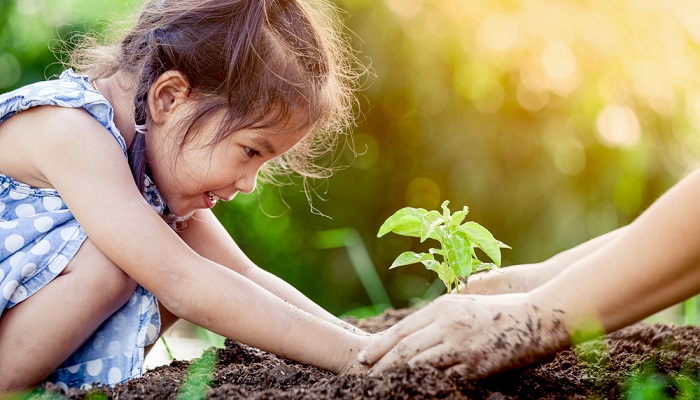If something gets stuck in the mind of children, then it is difficult to forget it. Therefore, raising children is a big responsibility of the parents. Instill in their minds with ease that nature is from us and we are from nature. Only then children will be able to understand social responsibility, says family expert and relationship counselor Shivani Misri Sadhu.
Your children spend more time at school, tutoring and at home. Here what they see, they start making it a part of their life. Therefore, right at the micro level, it is important that you teach the children what they have to adopt for the rest of their life. Small changes every day will make the children responsible. Just like telling children about good touch – bad touch, start saying a line with each action, good for environment and bad for environment. By listening to it continuously, children will understand its importance and will start applying it in their life. In the future, these children will be seen explaining to their classmates and friends about the need and care of the environment.
Learn to Reuse and Recycle
The older brother’s new shoes became smaller. Right now his condition is good, but due to the increase in height, you have got him new shoes, so what will you do with those shoes now? Explain to your younger son that he should use the shoes of his elder brother. Say the same with the books, colors and stationery items of the previous class. Teach the older child to share and play with the younger child’s toys. Not using anything properly also increases the burden on nature, so teach children the virtues of avoiding wastage of goods.
Need to save energy
When something is given for free, it is not appreciated. It was the same with electricity, as long as it was available without paying any money. With the changing times, when it started costing money to stay in the light, then people thought of not spending it extravagantly. Teach your child that extraneous lighting and fans not only increase the cost, but unnecessary consumption of electricity also harms those who do not have proper access to electricity.
Say bye to wastage
Waste is neither good for food products, nor water nor any material. Tell children to take only as much food as they need on their plate. If this habit is developed in children from childhood, then they will go to any corner of the world, they will not waste food. The same is with water. Not only tell them about the disadvantages of water wastage, but also explain the need and benefits of water conservation. Show stories and videos related to how they can support nature without doing anything by saving paper waste. Tell them that along with planting saplings on their birthday, if they learn to water and grow them, they will become good friends of nature.



